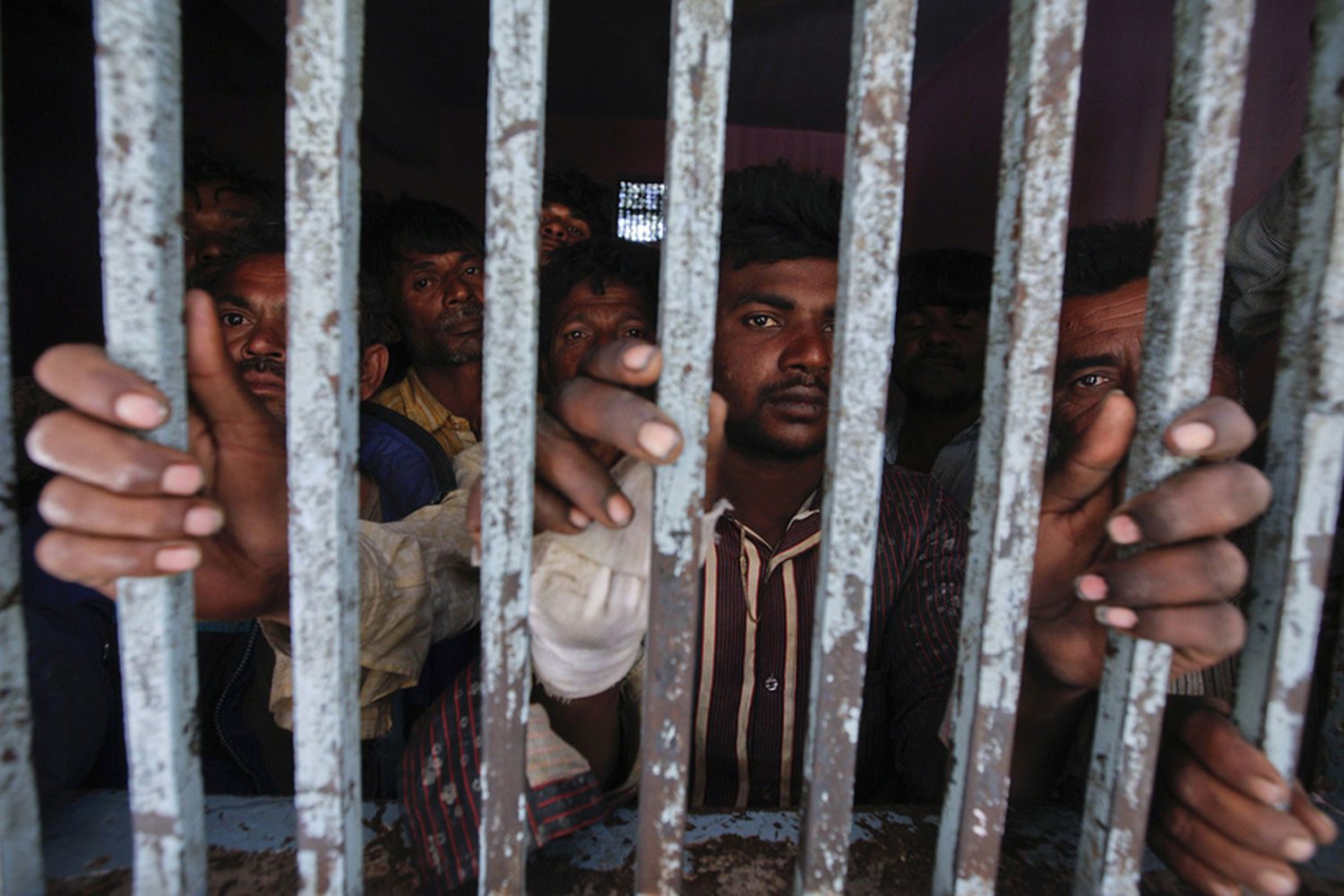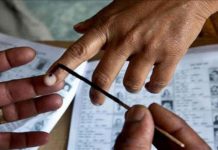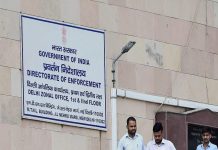
Today, amidst the developmental cries, where’s that required focus on the jails and on those languishing in jails? Can there be some degree of transparency to what’s taking place inside those high walls?
Here’s hoping and wishing that the under-trials get some sort of relief in this month of August – after all, this month is of great and immense historical and emotional and social significance for us Indians.
It gets significant to ask: What is happening in terms of relief to the growing number of the under-trials lodged in the country’s jails and prisons? As citizen of the country we ought to know what is happening inside those high walls, to those who sit languishing. Why jails and prisons are not being developed and spruced up along the developmental cries? Where is the transparency in the treatment meted out to the jailed? Why shouldn’t a non-governmental agency be allowed to carry out investigative probes? Why is it getting easy for the police and agencies to arrest an innocent and frame charges on him; with which he sits languishing as an under-trial for years to come? Why are details to the jailed under-trials not probed by an independent agency or a watchdog group?
Not to overlook a very vital fact to the imprisoned in our country — almost seventy-five percent of the imprisoned are under-trials and with that technically innocent. Yet, they sit imprisoned. Frustrated and disgusted with the system, many fade away, some even try to break free, only to be bound once again! We haven’t even bothered to study the crucial ‘why’ inmates try to break free, try their utmost to run away from prison hellholes. Perhaps, they are unable to cope with the overdose of jailed life and cannot pick up the courage to talk about the trauma and stress they are undergoing. Talk to whom?
Today, amidst the developmental cries, where’s that required focus on the jails and on those languishing in jails? If the rulers carried even faint traces of connect with the disadvantaged, the first thing they would have done was to reach out to the jailed inmates. To begin with, they ought to have expanded the very concept of open jails. Let the jailed men and women breathe fresh air. Even if they have committed crimes, it does not give the State the sanction to demolish them, slowly and steadily.
A large number of under-trials languish in jails even after they are granted bail because they are unable to raise the surety amount. In this context, we should consider the release of under-trials on personal bonds.
Can there be some degree (not third degree!) of transparency to what’s taking place inside those high walls? Also, how I wish that several of the jailed political prisoners of the day write details to what’s taking place in their jails…detailed to their jailed life. Let’s not overlook the fact that in those yesteryears best works were authored by the political who’s who, when they sat jailed.
Let us not bypass the core fact to the jailed – they are a part and parcel of the society and system that is only furthering the crime graph and not lessening it. Aren’t we, as a collective lot, to be blamed for this! Isn’t our system and society, directly or indirectly, pushing many towards crime and violence?
Moving about freely, from here to there!
And along the strain of what I have been writing all along, let me re-stress that we lived in a far less complicated times in those years long past by…that’s when human beings could move about freely from here to there. If Saadat Hasan Manto’s clan had moved from Kashmir to the Punjab, several who’s who had shifted to reside in the Kashmir Valley.
I just re-read Andrew Whitehead’s book – ‘The Lives of Freda – The Political, Spiritual and Personal Journeys of Freda Bedi’ (Speaking Tiger), focusing on the life and times of the extraordinary English woman, Freda, who’d married B.P.L Bedi, in Oxford in 1933 (Freda and B.P.L Bedi – parents of film star Kabir Bedi), and one realized how the world was actually a cosy little setup!
To quote from Andrew Whitehead’s book, “The life of Freda Bedi is a remarkable story of multiple border crossings, confounding accepted definitions of identity. Born in a middle-class home in provincial England, she became a champion of Indian nationalism, even serving time in jail in Lahore as a satyagrahi. In Kashmir, in the 1940s, while her husband. B.P.L Bedi drafted the ‘New Kashmir’ manifesto, she kept in contact with underground Left-Wing nationalists, and pined a women’s militia setup to defend Srinagar from the invading Pakistani tribesmen. In the 1950s, she encountered Buddhism during a visit to Burma.”
Freda’s journey to Burma brought along another turn in her life as she embarked on a spiritual journey. And around 1959 she persuaded Pandit Jawaharlal Nehru to give her a role to help the Tibetan refugees and with that she setup a school for the young Lamas and also a nunnery… In fact, Freda is possibly the first woman ever to receive full ordination as a Tibetan Buddhist nun.
Andrew Whitehead has also brought to the fore the role played by Freda and her husband in the Kashmir region. Perhaps, the crux holds out in the two letters of Jawaharlal Nehru to Sheikh Abdullah which, together with this brief backgrounder, are tucked in this book – “Nehru also pressed Sheikh Abdullah to keep communists at a distance, with Bedi the main target of his displeasure. In May 1949, after a brief visit to Kashmir, Nehru wrote to ‘Shaikh Saheb’ with a gentle warning : quite a number of our embassies here are greatly worried at, what they say, the communist infiltration into Kashmir… most of them have heard about Bedi and they enquire about him. I understand that Bedi is editing the newspaper there and is drawings substantial salary plus free car etc. I have no personal grievance against Bedi, but in view of the trouble we are having with the Communist Party in India, naturally Bedi’s name is constantly coming up before people here.”
There was another letter from Nehru to Sheikh Abdullah (it followed the first one) and is along the same pattern: “You referred to the Bedis, I rather like them …I know Freda left the Communist Party some years ago. What she done since, I do not know. But so far as I know, Bedi has continued in the Party, and the Party, especially today, does not tolerate lukewarm people or those who do not fall in line with their present policy… I do not want you to push out the Bedis and cause immediate distress to them. But I do think that no responsible work should be given to them and they be kept completely in the background. Yesterday I saw a little book on you written by the Bedis. This kind of thing immediately makes people think that the Bedis are playing a prominent role in Kashmir and are closely associated away from Kashmir, because they felt that leftist policies would be going on more and more adamantly if I stayed on there.”
There are also more than hints that the Bedi couple were trying to project Sheikh Abdullah as a national leader. In fact, not very surprisingly the best phase of their lives in terms of social and financial well-being was the time this couple spent in the Kashmir region… This book holds out the who’s who they met and interacted with.













